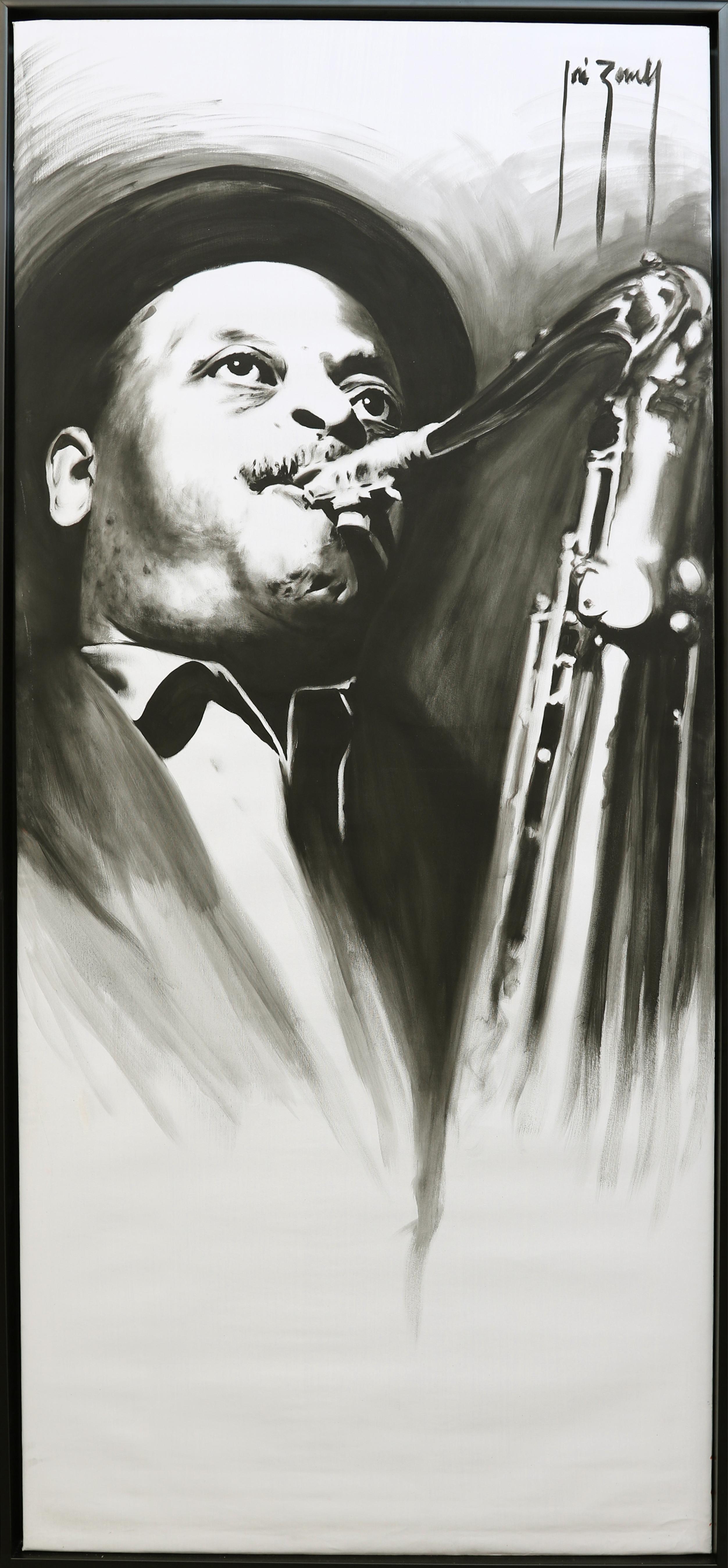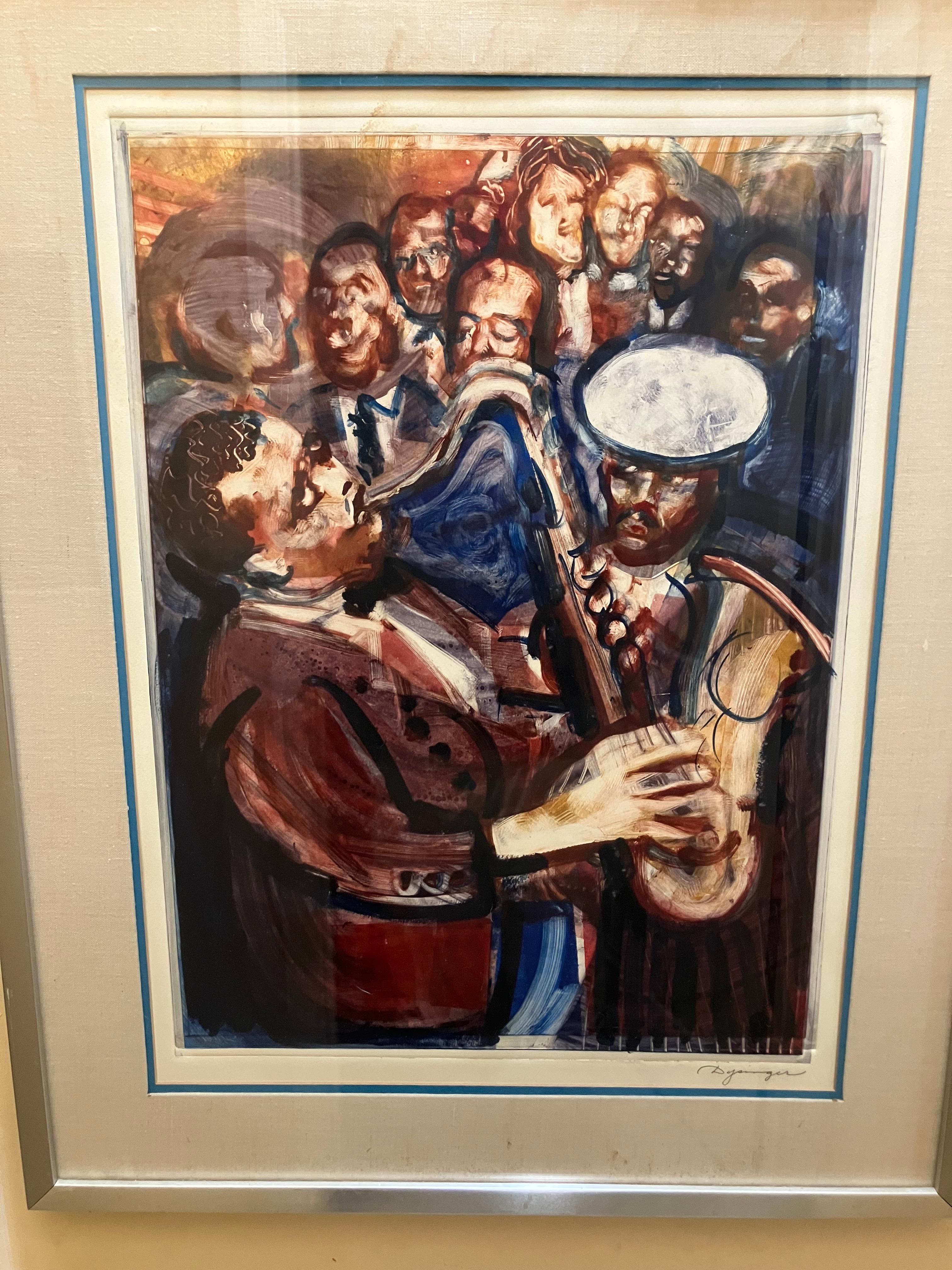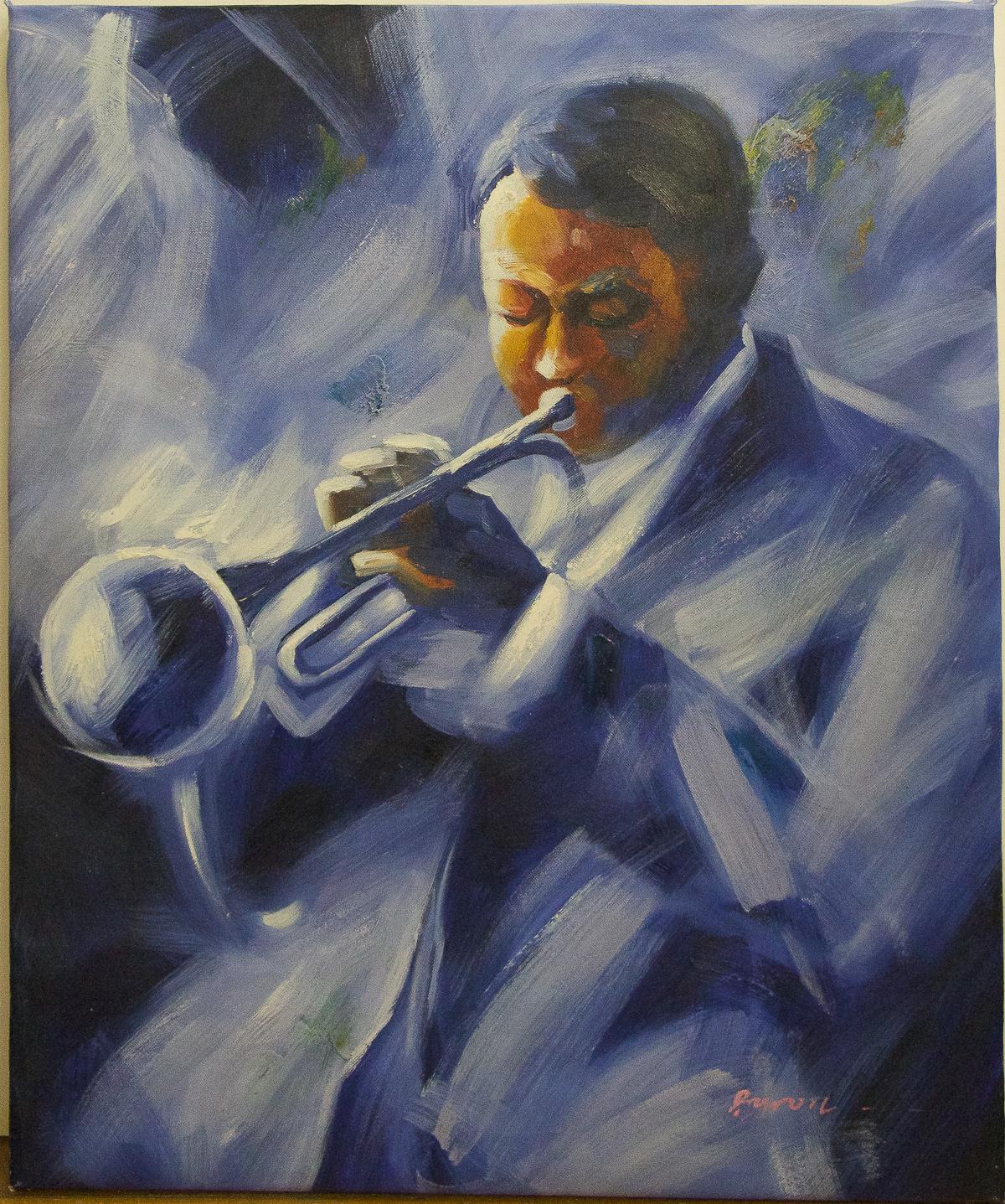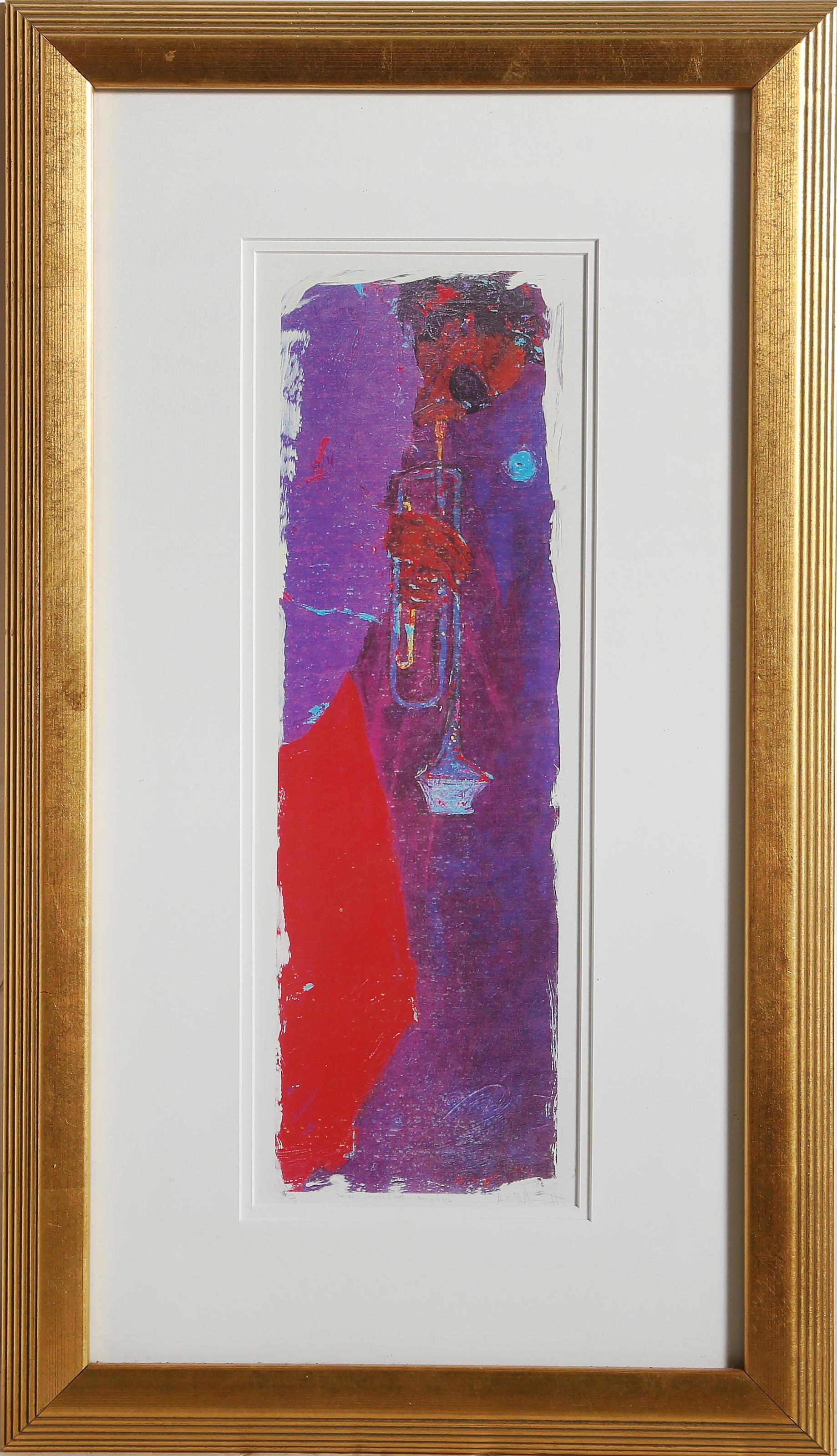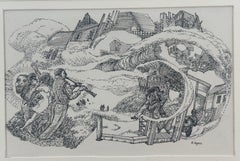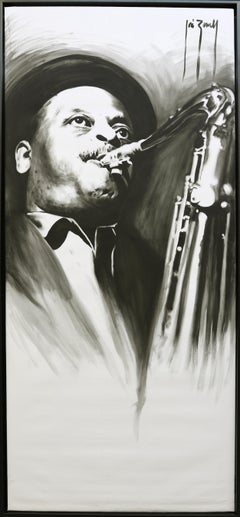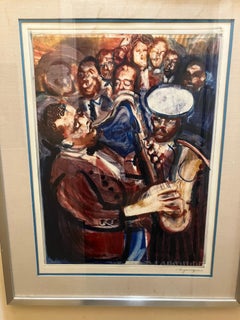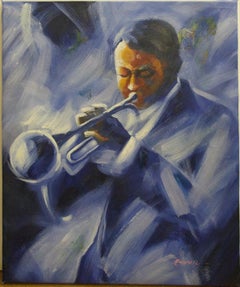Items Similar to Didn't He Ramble? (Jazz Musician Trumpet Player)
Want more images or videos?
Request additional images or videos from the seller
1 of 11
Whitford CarterDidn't He Ramble? (Jazz Musician Trumpet Player)1964
1964
$700
£530.38
€608.57
CA$985.01
A$1,082.80
CHF 569.07
MX$13,149.14
NOK 7,099.01
SEK 6,725.81
DKK 4,541.93
About the Item
Whitford Carter (1915-1973). Didn't He Ramble?, 1964. Lithograph on paper, image measures 13 x 17 inches; 19 x 22 inches in original frame. Signed, dated, numbered and titled by artist in pencil, lower margin.
- Creator:Whitford Carter (1915 - 1973, American)
- Creation Year:1964
- Dimensions:Height: 13 in (33.02 cm)Width: 17 in (43.18 cm)Depth: 0.25 in (6.35 mm)
- Medium:
- Movement & Style:
- Period:
- Condition:
- Gallery Location:Wilton Manors, FL
- Reference Number:1stDibs: LU245211120552
About the Seller
4.9
Platinum Seller
Premium sellers with a 4.7+ rating and 24-hour response times
Established in 2007
1stDibs seller since 2015
420 sales on 1stDibs
Typical response time: 2 hours
- ShippingRetrieving quote...Shipping from: Wilton Manors, FL
- Return Policy
Authenticity Guarantee
In the unlikely event there’s an issue with an item’s authenticity, contact us within 1 year for a full refund. DetailsMoney-Back Guarantee
If your item is not as described, is damaged in transit, or does not arrive, contact us within 7 days for a full refund. Details24-Hour Cancellation
You have a 24-hour grace period in which to reconsider your purchase, with no questions asked.Vetted Professional Sellers
Our world-class sellers must adhere to strict standards for service and quality, maintaining the integrity of our listings.Price-Match Guarantee
If you find that a seller listed the same item for a lower price elsewhere, we’ll match it.Trusted Global Delivery
Our best-in-class carrier network provides specialized shipping options worldwide, including custom delivery.More From This Seller
View AllJazz Trio (Black Philadelphia artist)
By Roland Ayers
Located in Wilton Manors, FL
Roland Ayers (1932-2014).
The Split Second After, ca. 1959
Lithograph on paper, image measuring 14 × 18 inches. Sheet measuring 18 × 23 inches.
Unframed. Minor staining of sheet...
Category
1950s Surrealist Figurative Prints
Materials
Paper, Ink
Jazz Musicians (1950's Black Philadelphia artist)
By Roland Ayers
Located in Wilton Manors, FL
Roland Ayers (1932-2014).
The Split Second After, ca. 1959
Lithograph on paper, image measuring 14 × 18 inches. Sheet measuring 18 × 23 inches.
Unframed. Minor staining of sheet...
Category
Mid-20th Century Abstract Abstract Drawings and Watercolors
Materials
Ink, Archival Paper
Untitled (Miles Davis) (Black Surrealist Philadelphia artist)
By Roland Ayers
Located in Wilton Manors, FL
Roland Ayers (1932-2014).
Untitled (Sad Shit), 1969.
Ink on illustration board. Panel measures 15 × 13 inches.
Unfinished composition on verso.
Artist and art educator, Roland ...
Category
1960s Surrealist Abstract Drawings and Watercolors
Materials
Paper, Ink
Land's End (Black Surrealist Philadelphia artist)
By Roland Ayers
Located in Wilton Manors, FL
Roland Ayers (1932-2014).
Land’s End, 1971
Ink on paper, 3.25 × 5 inches
Signed and dated.
Artist and art educator, Roland Ayers was born on July 2, 1932, the only child of Ali...
Category
1970s Surrealist Abstract Drawings and Watercolors
Materials
Paper, Ink
Anthem (Black Surrealist Philadelphia artist)
By Roland Ayers
Located in Wilton Manors, FL
Roland Ayers (1932-2014).
Anthem, 1972.
Ink on Paper, 4.75 × 7 inches.
Signed and dated.
Measuring 12 × 16 inches in acid-free matting.
Artist and art educator, Roland Ayers...
Category
1970s Surrealist Abstract Drawings and Watercolors
Materials
Paper, Ink
Empirial Message (Surrealist Black Philadelphia Artist)
By Roland Ayers
Located in Wilton Manors, FL
Roland Ayers (1932-2014).
The Emperial Message, 1959.
Drypoint Etching on paper, 15 × 17 ¾ inches. Larger in acid free archival matting. No Frame.
A/P (no edition, unique examp...
Category
1960s Surrealist Abstract Prints
Materials
Paper, Ink
You May Also Like
Trumpet Player, 1960's Oil Painting by Marshall Goodman
By Marshall Goodman
Located in Long Island City, NY
Trumpet Player
Marshall Goodman, American (1916–2003)
Date: circa 1960
Oil on Canvas
Size: 30 in. x 24 in. (76.2 cm x 60.96 cm)
Frame Size: 32 x 26 inches
Category
1960s American Modern Portrait Paintings
Materials
Oil
The Theory on Jazz History
By Jose Borrell
Located in Atlanta, GA
This painting is in excellent condition and has only been shown in a gallery setting. The painting measures 78" x 35" and 81"x 38" with frame.
Known for his hyperrealist nudes and portraits, Jose Borrell captures both the human form and emotions. Transcending beyond mere documentation, Borrell transmits the personality and essence of his subjects.
His latest series focuses on twentieth-century American jazz saxophonist Ben Webster, and true to Borrell's signature trait, the paintings transmit the vibrant energy of the acclaimed musician. Born in 1909 in Kansas City, Missouri, Ben Webster studied violin in elementary school and taught himself piano. In 1927-1928 he played for silent movies in Kansas City and in Amarillo, Texas. After a friend introduced him to basic chords on the saxophone, he devoted himself to the instrument and played with many emerging orchestras in the bustling 1930s Kansas City jazz...
Category
2010s Expressionist Figurative Paintings
Materials
Canvas, Oil
$675 Sale Price
82% Off
Susan Dysinger New Orleans Jazz Monoprint
Located in San Francisco, CA
Incredibly detailed and colorful mono print from the American artist Susan Dysinger. She studied art at the university of California at Santa Barbara. Known for these New Orleans jaz...
Category
Late 20th Century American Realist Figurative Prints
Materials
Monoprint
"Untitled (Jazz Musician)" Signed Painting on Canvas
Located in Chesterfield, MI
Untitled "Jazz Musician", oil painting on canvas. Piece is signed by artist, or piece of title "Buruic"in bottom right corner. Overall, painting is in g...
Category
20th Century Portrait Paintings
Materials
Oil
$360 Sale Price
20% Off
Magnificent Miles, Modern Lithograph by Alvin Carl Hollingsworth
By Alvin C. Hollingsworth
Located in Long Island City, NY
Alvin Carl Hollingsworth, American (1928 - 2000) - Magnificent Miles, Medium: Lithograph, signed titled and numbered in pencil, Edition: 2/5, Image Size: 16.5 x 5 inches, Frame Si...
Category
1980s Modern Figurative Prints
Materials
Lithograph
Le Jazz Hot, Modern Hand-Colored Lithograph by Alvin Carl Hollingsworth
By Alvin C. Hollingsworth
Located in Long Island City, NY
Alvin Carl Hollingsworth, American (1928 - 2000) - Le Jazz Hot, Year: circa 1990, Medium: Hand painted Lithograph on paper, signed lower left in pencil, Size: 14 x 9.75 in. (35.56...
Category
1990s Modern Figurative Prints
Materials
Lithograph
More Ways To Browse
Whitford Carter
British Caricature
Chagall Lithograph Daphnis And Chloe
Chapiro Jacques
Dali 1972
Damien Hirst Skull
Daniel Dens
De Goya Prints
Epreuve D Artiste Salvador Dali
Erte Alphabet
Erte Signed And Numbered
Freud Etchings
Gay Vintage Prints
Giacometti Etching
Giovanni Folo
Goya Los Caprichos
Greek Etching
Harunobu Suzuki
